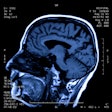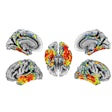
A new test for abnormal tau in cerebrospinal fluid (CSF) has potential for diagnosing a range of neurodegenerative conditions, researchers from the U.S. National Institutes of Health (NIH) concluded in a study published online October 16 in Acta Neuropathologica.
Abnormalities in the protein tau are at the root of more than 25 neurodegenerative conditions, including Alzheimer's disease, and better means of testing are needed, other than the analysis of postmortem brain tissue, the researchers noted.
 Researchers at the NIH's Rocky Mountain Laboratories in Hamilton, MT, have developed a test for abnormal tau in cerebrospinal fluid. Image courtesy of the NIH.
Researchers at the NIH's Rocky Mountain Laboratories in Hamilton, MT, have developed a test for abnormal tau in cerebrospinal fluid. Image courtesy of the NIH.To help evaluate these abnormalities, researchers at the Hamilton, MT-based Rocky Mountain Laboratories, part of the NIH's National Institute of Allergy and Infectious Diseases (NIAID), developed a test known as 4R RT-QuIC, or 4-repeat tau protein amplified in a real-time, quaking-induced conversion process.
The test was useful for detecting abnormal tau in living and deceased patients, and it showed promise for helping to correctly diagnose brain diseases, including uncommon conditions.
"Altogether, 4R RT-QuIC provides a practical cell-free method of detecting and subtyping pathologic 4R tau aggregates as biomarkers," wrote Byron Caughey, PhD, a senior investigator in the NIAID's Laboratory of Persistent Viral Diseases, and colleagues in Acta Neuropathologica. Co-authors of the study were from several other institutions inside and outside of the U.S.
In the future, the researchers plan to test larger sets of CSF samples and track abnormal tau in samples over time.



















